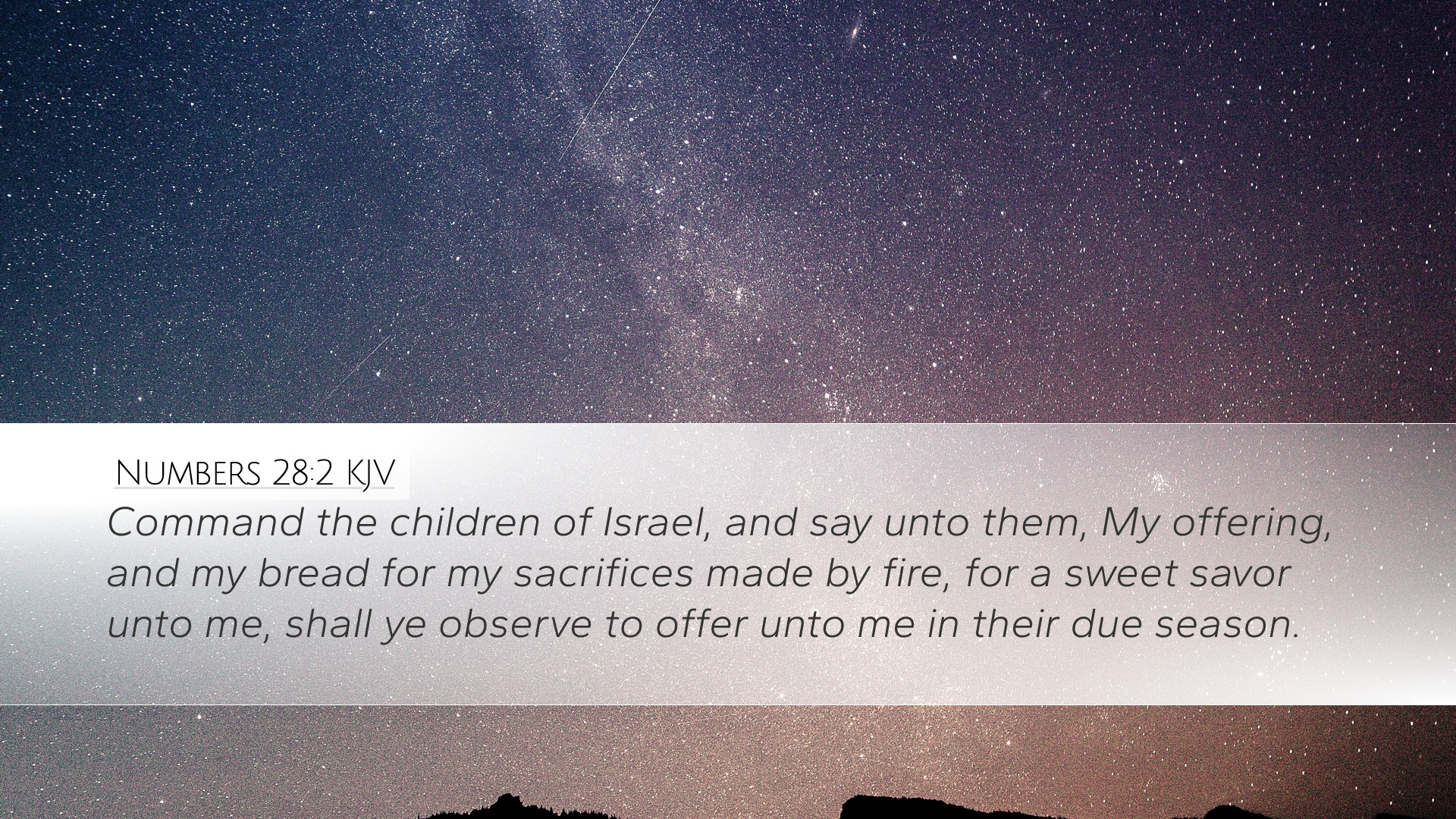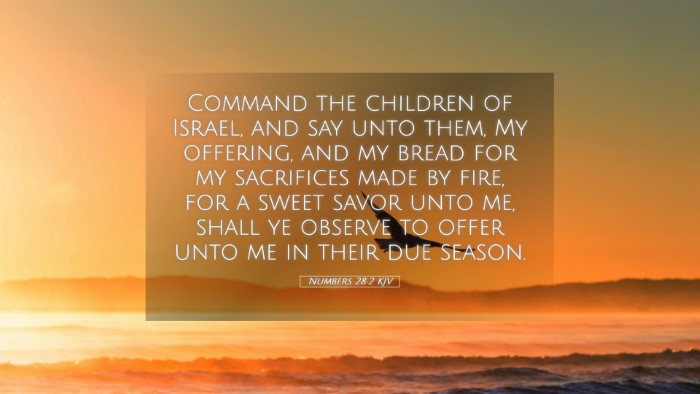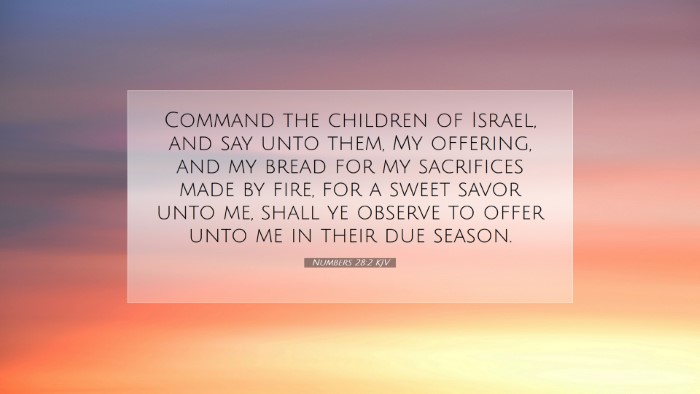Commentary on Numbers 28:2
Verse Text: "Command the children of Israel, and say unto them, My offerings, and my bread for my sacrifices made by fire, for a sweet savour unto me, shall ye observe to offer unto me in their due season."
Introduction
Numbers 28:2 contains God's instructions to the Israelites regarding their offerings. The structure and intention behind these commandments reveal foundational theological principles and practical applications for the community of faith.
Contextual Overview
This verse is nestled within the broader context of the sacrificial system established by God for Israel. It addresses the importance of proper observance and timing in the offerings, emphasizing their role in maintaining a relationship with God.
The Significance of Offerings
- Divine Command: The verse begins with a clear directive: “Command the children of Israel.” This indicates the authority with which God speaks through Moses, emphasizing the obligatory nature of the offerings.
- My Offerings: The possessive "My" underscores that these offerings belong to God and reflect His holiness. This highlights the sovereignty of God over all sacrificial rites.
- Purpose of Offerings: The phrase “for a sweet savour unto me” illustrates that these offerings are not merely ritualistic acts but are deeply relational, designed to please God and foster communion.
- Due Season: The term “in their due season” stresses the importance of timing and regularity in worship practices. Both pastors and theologians note that God desires order and intentionality in worship.
Theological Implications
Understanding this verse requires a recognition of several theological themes:
- Holiness of God: The offerings symbolize acknowledgment of God’s holiness and an individual's need for atonement.
- Community Worship: The collective nature of the command points to the community aspect of faith. Worship is to be shared; individual believers engage in communal acts that please the Lord.
- God’s Desire for Relationship: The sweet savour described indicates God's desire for a genuine and loving relationship with His people.
Insights from Commentators
Matthew Henry
Henry emphasizes the necessity of the offerings being made "in their due season" as a reflection of one's attentiveness to divine directives. He notes that the regularity of these sacrifices not only honors God but also cultivates a rhythm of worship within the community. In his view, every sacrifice is an act of obedience that expresses the giver's faith and devotion to God.
Albert Barnes
Barnes interprets "sweet savour" as indicative of God’s pleasure and acceptance. He points out that these offerings serve as a type of mediation, allowing for the restoration of fellowship between the Israelites and their God. Barnes further highlights the theological significance of ritual purity and appropriate conduct, asserting that these sacrifices are a means of approaching the divine and receiving grace.
Adam Clarke
Clarke regards the offerings as fundamental to the covenant relationship between God and Israel. He delves into the nature of the sacrifices, arguing they prefigure the ultimate sacrifice of Christ. Clarke emphasizes the importance of sincerity in worship, asserting that the outward actions must be accompanied by a heartfelt disposition towards God.
Practical Applications for Ministry
Numbers 28:2 offers meaningful insights for contemporary pastors, students, and theologians:
- Regular Worship: Just as the Israelites were commanded to observe offerings in due season, modern worship practices require discipline and regularity. Churches should create environments where worship is deep-rooted and scheduled to maintain community engagement.
- Teaching on Sacrifice: Pastors can use the themes of sacrifices to explain the broader concept of stewardship and offering oneself to God—teaching congregants about the importance of their commitment to God's work.
- Encouragement of Faithful Service: Just as offerings were a way to please God, believers today are called to offer their talents and resources in service to others, reflecting the heart behind the sacrificial system.
- Consistent Theology of Worship: Worship must extend beyond mere form and be infused with the right heart attitude, connecting the concept of sacrifice to everyday life. This helps maintain a healthy balance between duty and delight in worship practices.
Conclusion
Numbers 28:2 delivers profound insights into God's expectations for worship and offering. The established covenantal practice reveals God's desire for connection with His people while prompting believers to respond in faithfulness. As scholars and students of Scripture reflect on this command, may it inspire a renewed conviction to honor God with their lives and offerings.


